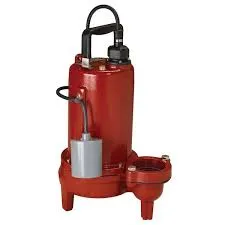Slovak
- Afrikaans
- Albanian
- Amharic
- Arabic
- Armenian
- Azerbaijani
- Basque
- Belarusian
- Bengali
- Bosnian
- Bulgarian
- Catalan
- Cebuano
- Corsican
- Croatian
- Czech
- Danish
- Dutch
- English
- Esperanto
- Estonian
- Finnish
- French
- Frisian
- Galician
- Georgian
- German
- Greek
- Gujarati
- Haitian Creole
- hausa
- hawaiian
- Hebrew
- Hindi
- Miao
- Hungarian
- Icelandic
- igbo
- Indonesian
- irish
- Italian
- Japanese
- Javanese
- Kannada
- kazakh
- Khmer
- Rwandese
- Korean
- Kurdish
- Kyrgyz
- Lao
- Latin
- Latvian
- Lithuanian
- Luxembourgish
- Macedonian
- Malgashi
- Malay
- Malayalam
- Maltese
- Maori
- Marathi
- Mongolian
- Myanmar
- Nepali
- Norwegian
- Norwegian
- Occitan
- Pashto
- Persian
- Polish
- Portuguese
- Punjabi
- Romanian
- Russian
- Samoan
- Scottish Gaelic
- Serbian
- Sesotho
- Shona
- Sindhi
- Sinhala
- Slovak
- Slovenian
- Somali
- Spanish
- Sundanese
- Swahili
- Swedish
- Tagalog
- Tajik
- Tamil
- Tatar
- Telugu
- Thai
- Turkish
- Turkmen
- Ukrainian
- Urdu
- Uighur
- Uzbek
- Vietnamese
- Welsh
- Bantu
- Yiddish
- Yoruba
- Zulu
Telephone: +86 13120555503
Email: frank@cypump.com
nov . 27, 2024 16:21 Back to list
Understanding the Function and Importance of Sewage Ejector Pumps in Waste Management
Understanding Sewage Ejector Pumps Essential Components for Wastewater Management
In modern wastewater management, the efficient handling of sewage is crucial for public health and environmental protection. One of the essential components in this process is the sewage ejector pump. These devices are specifically designed to move sewage and wastewater from lower to higher elevations, making them indispensable in residential and commercial plumbing systems.
What is a Sewage Ejector Pump?
A sewage ejector pump is a type of submersible pump that is used to transport sewage and wastewater from a basement or lower level to a sewer system or septic tank that is positioned at a higher elevation. These pumps are typically installed in a sump pit, where they collect the waste water and sewage before pumping it upward through pipes to the appropriate drainage system.
How Do Sewage Ejector Pumps Work?
The operation of a sewage ejector pump is relatively straightforward. Wastewater flows into a sump pit, where the pump is located. As the liquid level in the pit rises to a certain point, a float switch activates the pump. The pump then utilizes an impeller to create pressure that pushes the sewage through the discharge pipe and up to the main sewer line.
These pumps are built to handle solids and other debris often found in sewage systems. With a powerful motor and a robust design, sewage ejector pumps can efficiently manage waste containing toilet paper, food scraps, and even some small objects, ensuring that the wastewater is moved safely and effectively.
Key Features of Sewage Ejector Pumps
1. Durability Sewage ejector pumps are designed to withstand harsh conditions. They are typically made of corrosion-resistant materials, making them suitable for the corrosive nature of sewage and wastewater.
2. High Capacity Many ejector pumps come with different horsepower ratings, allowing users to choose a model that meets their specific needs. Higher horsepower pumps can handle larger volumes of sewage.
3. Built-in Protection Most modern ejector pumps come equipped with a variety of safety features, including thermal overload protection and float switches that prevent the pump from running dry, thereby prolonging its lifespan.
sewage ejector pumps

4. Ease of Maintenance Regular maintenance is essential for ensuring the longevity and performance of a sewage ejector pump. Many models are designed for easy access to components, which facilitates routine inspections and repairs.
Applications of Sewage Ejector Pumps
Sewage ejector pumps are commonly used in various settings, including
- Residential Basements In homes with basements located below the sewer line, ejector pumps are crucial for managing waste water from bathrooms, laundry rooms, and sinks.
- Commercial Buildings Restaurants, hotels, and other commercial establishments often utilize sewage ejector pumps to handle wastewater from kitchens and restroom facilities.
- Industrial Applications Factories and manufacturing plants may require specialized ejector pumps to manage unique types of waste products.
Importance of Choosing the Right Pump
Selecting the appropriate sewage ejector pump is critical to ensuring efficient wastewater management. Factors to consider include the pump's capacity, the nature of the waste, the vertical lift required, and the total distance the sewage needs to be pumped. Consulting with a plumbing professional can help homeowners and businesses make informed decisions tailored to their specific situations.
Conclusion
In summary, sewage ejector pumps play a vital role in managing wastewater effectively, particularly in situations where gravity alone cannot suffice. By understanding how these pumps operate, their features, and their applications, property owners can ensure that their sewage and wastewater systems function efficiently and effectively. Regular maintenance and the right choice of pump can go a long way in creating a safe and hygienic environment for both residential and commercial settings. As urbanization continues to grow, the importance of reliable wastewater management systems, including sewage ejector pumps, will only become more pronounced.
-
Custom Drilling Mud and Slurry Pump Supplier - High Efficiency, Tailored Solutions
NewsJun.10,2025
-
Supply Vertical Submersible Sewage Pump High-Efficiency WQ/QW Pumps Supplier
NewsJun.10,2025
-
Premium Sewage Ejection System & Pumps Efficient Waste Removal
NewsJun.09,2025
-
Premium Wholesale Slurry Pump Impellers Durable & Efficient Slurry Handling
NewsJun.09,2025
-
Top Sewage Pump Companies Durable Industrial Solutions for Efficiency
NewsJun.09,2025
-
Heavy Duty Slurry Pumps - OEM High Performance & Bulk Wholesale
NewsJun.09,2025










